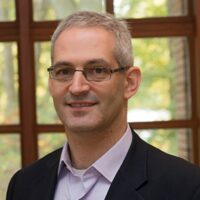
- Director, Program in Cardiovascular Imaging, Martinos Center for Biomedical Imaging
- Director, Cardiovascular Bioengineering and Biomedical Imaging (CABBI) Program
- Medical Director, Institute for Innovation in Imaging (I3)
Cardiology Division and Department of Radiology, Massachusetts General Hospital - Affiliated Faculty, Health Science and Technology (HST) Program,
Massachusetts Institute of Technology and Harvard Medical School
Associate Professor of Medicine
Harvard Medical School
Contact
Massachusetts General Hospital
Cardiovascular Research Center
149 13th Street, 4.138E
Charlestown, MA 02129
617-643-4451
Email
The Sosnovik lab is highly multidisciplinary with efforts in basic science, bioengineering and biomedical imaging all aimed at improving the understanding of common cardiovascular diseases. The lab has a strong interest in mechanisms of cardiomyocyte injury and death including apoptosis, free DNA release and autophagy. This has been coupled with an interest in developing technologies to guide myocardial regeneration and the imaging of the cellular architecture of the heart to elucidate, and mimic, its microstructural properties. Fundamental discovery in cardiomyocyte biology is combined with fundamental discovery in bioengineering and biomedical imaging. This includes the development of targeted and theranostic nanoparticles, capable of detecting and modulating processes such as apoptosis and inflammation. Developments/applications in biomedical imaging have included initial descriptions of fluorescence tomography, diffusion tensor MRI tractography, optical coherence tractography, fluorescence lifetime imaging and targeted molecular MRI in the heart. New focus areas in the lab include PET-MR of histone deacetylase (HDAC) expression in the heart and mechanisms to reverse myocardial fibrosis. Systems approaches are used to model and integrate interconnected processes such as autophagy, HDAC expression and fibrosis. Our work ranges from single cells, including IPSc-derived cardiomyocytes, through small and large animal models to translational studies in humans.
Research Areas
Cardiac Physiology and Disease
Cardiovascular Bioengineering and Biomedical Imaging
Development & Regeneration
Publications
View Publications
